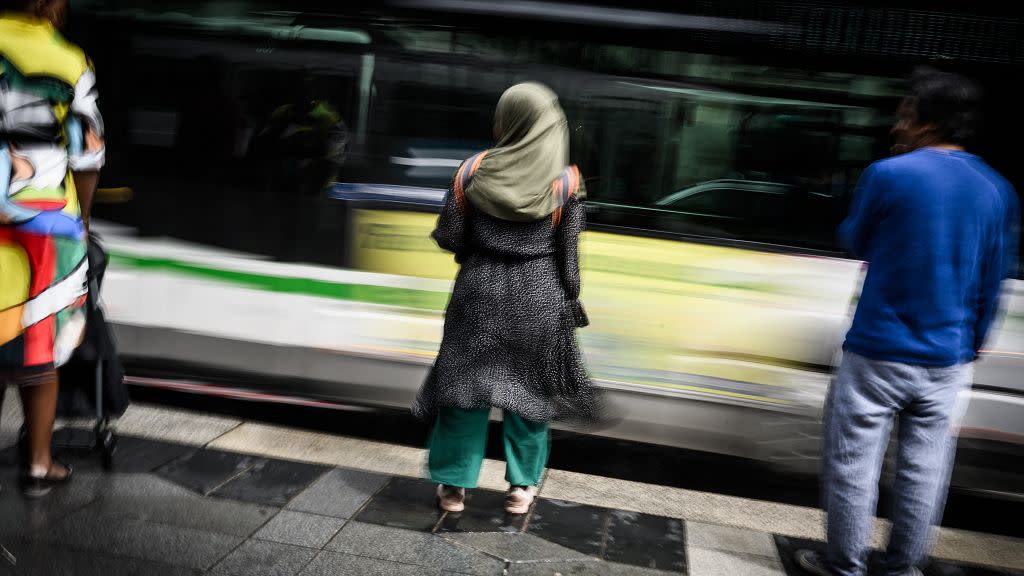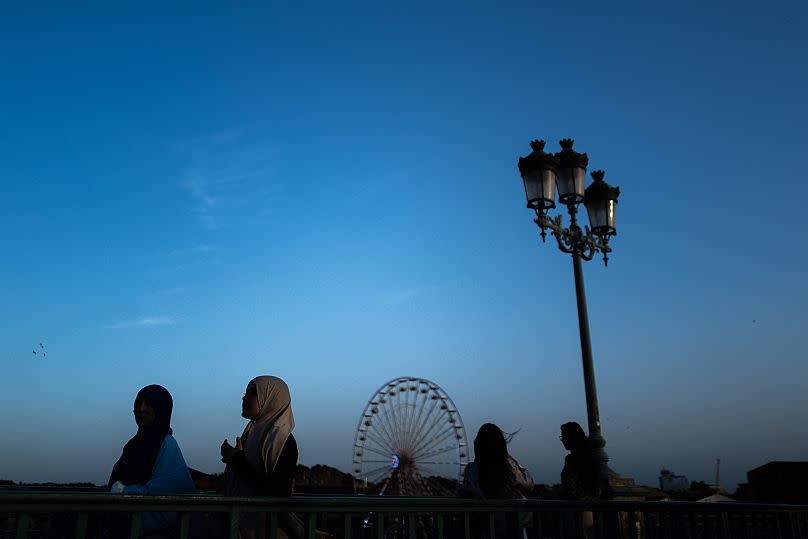New Islam controversy in France as high court discusses abaya ban

The highest court in France is set to decide on Thursday on the controversial abaya ban in the country, one which has caused uproar from both sides of the political fence.
The abaya - a long, robe-like dress, has been prohibited in schools across the nation since last month.
The ban is the latest in a long line of similar moves, aimed at enforcing France’s separation of state and religion.
In August, the French education minister, Gabriel Attal, put the prohibition in place, saying that the garment breached the "principle of secularism".
Since pupils went back to class on 4 September, dozens of girls have been sent home for refusing to remove their abayas.
While flouting the ban may anger some who think it's a solid idea, psychology expert Bayu Prihandito tells Euronews that it could lead to an identity crisis.
"Adolescence is a critical period for building our identity. The abaya, for many, isn't just attire but a symbol of faith, culture, and personal choice", Prihandito explains, adding, "Restricting its use can lead to an identity crisis, where students struggle with questions about who they are and where they can fit within the society".
France has enforced vetos on religious symbols in state schools since 2004, including forbidding headscarves in schools and full-face veils in public.

Known as laïcité, it's a strict brand of secularism and one which has proved divisive, regularly triggering political tension in the country. The more than five million-strong Muslim community have frequently spoken out against the decisions.
In order to enforce the abaya ban, Gabriel Attal has previously announced that 14,000 educational personnel would be trained by the end of this year, with that number rising to 300,000 by 2025.
The announcement was immediately contentious, with some seeing it as a welcome reminder of secularism, while others claimed it was nothing but a smokescreen intended to eclipse problems in the education department - or to fuel 'Islamophobia'.
As a result, the Conseil d'État - or Council of State - has been forced to wade into the debate.
Dating back to 1302, it is the highest court in France for issues and cases involving public administration.
It was urgently contacted by a Muslim association, which claimed the ban is an "attack on the rights of the child".
In response, Guillaume Odinet of the Ministry of Education said the abaya "immediately recognises the person wearing it as belonging to the Muslim religion".
The 2004 law prohibited the wearing in public schools of garments which "conspicuously" demonstrated religious affiliation.
Secularism has been a pillar of the French Republic since a law of 1905 and has often influenced lawmakers into making decisions which focus specifically on the Muslim population.
The debates raging around bans like that of the abaya have become increasingly tense since a wave of deadly Islamist attacks hit the country in the last decade.
"We live in our society with a minority, people who, hijacking a religion, come to challenge the Republic and secularism," President Emmanuel Macron said on Monday, commenting about the ban.
"We can't act as if there haven't been terrorist attacks and [the case of] Samuel Paty," Macron continued, referring to the teacher murdered in 2020 by a radicalised young man of Chechen origin. Paty had allegedly shown caricatures of Muhammad in class as part of a lesson on freedom of expression.

According to a recent survey, reported on by AFP, some 81% of French people approve of the ban on the abaya in schools.
Prihandito tells Euronews that the ban could lead to social isolation and violence at worst.
"As humans, we are inherently social beings, and such isolation can be more damaging than it appears on the surface, leading to feelings of loneliness and, in extreme cases, depressive symptoms" Prihandito explains.
He adds: "Some might internalise the conflict, leading to suppressed emotions, while others might externalise it, resulting in violent behavioural issues".
As well as psychological and behavioural issues among schoolchildren, there are also concerns that the ban could cause further waves among the wider Muslim community.
"When you ban the abaya in France, you give an excuse to Islamists to say: 'Look, we are discriminated against'. It will be said that French secularism is anti-Islamic. This will be criticised. This could be used to justify violence,” Pooyan Tamimi Arab, an Iranian researcher in religious studies at the University of Utrecht fears.
France is regularly described as "Islamophobic" in the Muslim world, with its frequent bans and controversial cartoons of the Prophet Muhammad published in the publication Charlie Hebdo often decried as going "too far".
It is now up to the Council of State to decide whether the abaya ban is also going "too far" - or if it's entirely justified under French law.

 Yahoo News
Yahoo News 
